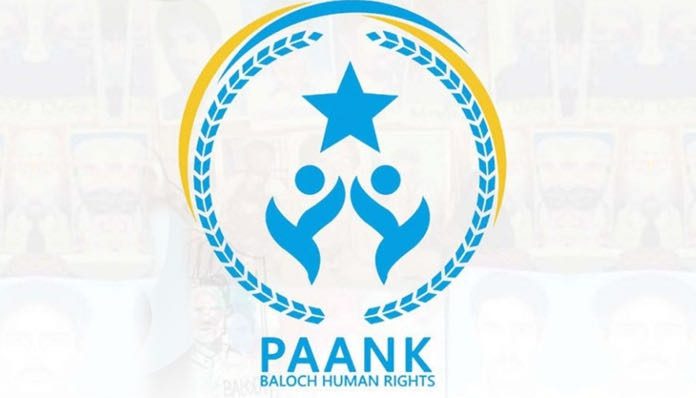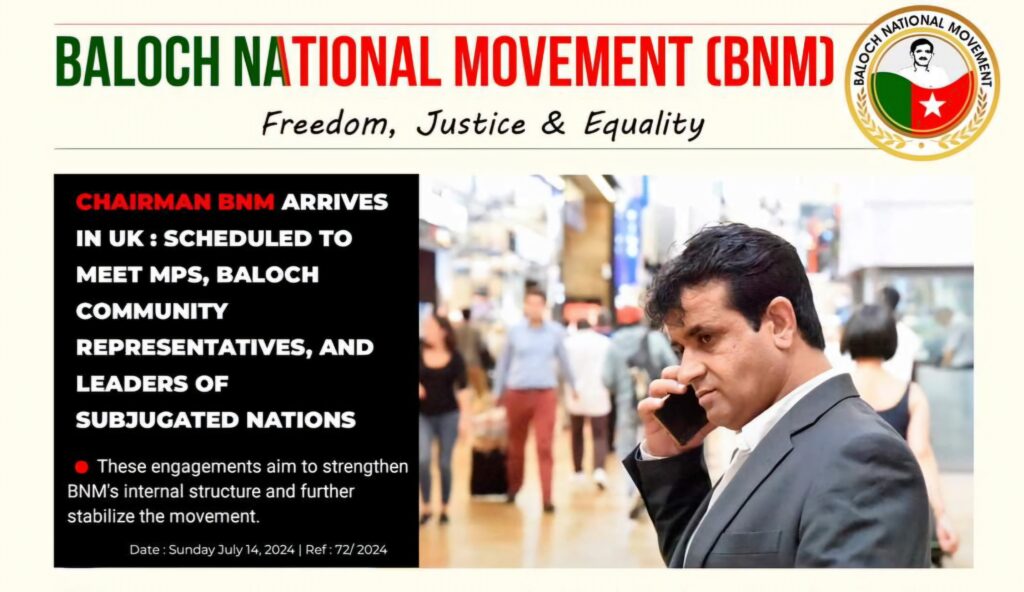As per Paank monthly Report “54 Baloch Forcefully Disappeared Across 12 Districts in Balochistan and Sargodha: Two Murders and a Youth’s Suicide Linked to Military Violence.
Paank, the human rights body of the Baloch National Movement (BNM), has released its human rights review report for June 2024. The report expresses deep concern over the increasing trend of suicides in addition to cases of enforced disappearances and extrajudicial killings in Balochistan.
According to Paank’s report, the Pakistani army detained 54 people from 12 different districts of Balochistan and Sargodha, Punjab, subjecting them to enforced disappearance. Among these, a young man named Naveed Lal was killed by Pakistani army operatives following his enforced disappearance from Hushaap. His bullet-riddled body was later discovered in Panjgur. On June 13, 2024, Pakistani army death squads attacked Abdul Basit’s house in Panjgur, resulting in his death and injuries to his wife, Zakia.
The report provides complete details of all 54 individuals forcibly disappeared after their abduction-like arrests by the Pakistan army. This includes 17 people from Kech, 5 from Awaran, 3 from Khuzdar, 9 from Dera Bugti, 2 from Barkhan, 2 from Sargodha, Punjab, 1 from Sibi, 2 from Dera Ghazi Khan, 1 from Chagai, 4 from Gwadar, 2 from Kharan, and 6 from Mastung.
The report highlights the case of 20-year-old Aqeel Ahmad resident of Mullahi Bazar Turbat, who committed suicide. It attributes his death to the severe psychological impact of the Pakistan army’s actions. Aqeel Ahmed was subjected to enforced disappearance twice, which severely affected his physical and mental health, leading to his suicide.
The report includes insights from a psychologist who noted that the aggression of the Pakistan army has led to various psychological disorders among the people of Balochistan.
The report also mentions ongoing protests by the families of the forcibly disappeared across Balochistan. Despite continuous demonstrations for the recovery of their loved ones, enforced disappearances persist, and the families of the disappeared face harassment by state forces.



